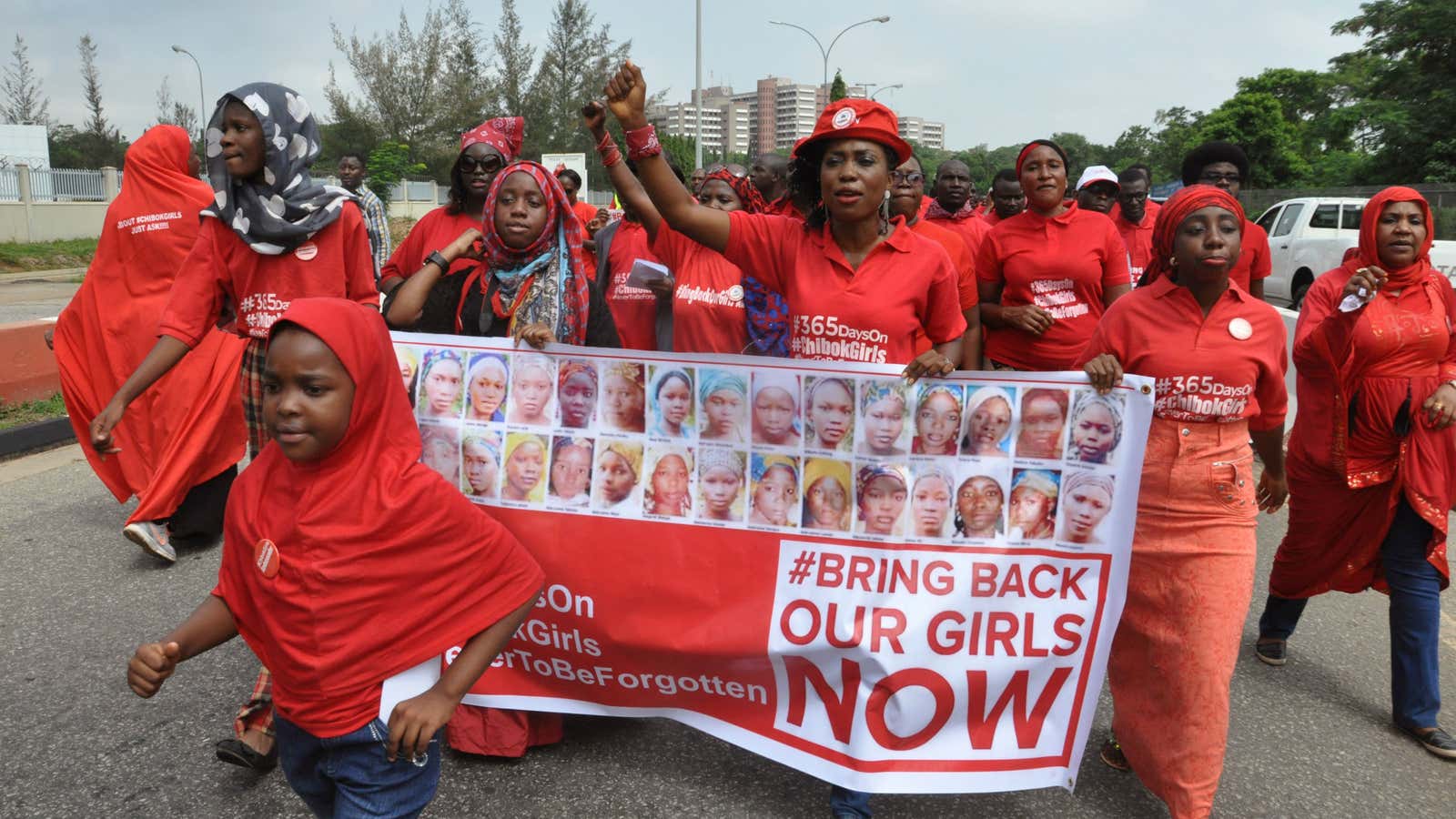The Nigerian schoolgirls kidnapped by Boko Haram in April 2014 from Chibok, a village in the country’s north east, could be reunited with their families after the terrorist sect offered to exchange the girls for key leaders of the militant group held by the government.
The kidnap of the 276 girls, which sparked a global movement called ‘Bring Back Our Girls’, remains a key issue in the Nigerian political space and the international scene as the inability to rescue the girls despite previous false claims by the military is seen as a damning failure.
While some girls escaped, it’s believed there are over 200 girls still in captivity. In recent months there have been reports that up to three of the girls had died while some others appear to have been converted to the cause of Boko Haram.
Boko Haram’s offer of an exchange is thought to the first step to possibly opening lines of negotiation with the new government. This sentiment was given further credence recently as a key adviser to Buhari suggested the president may be willing to negotiate with Boko Haram in a bid to put an end to the hostilities which have resulted in over 10,000 deaths and the displacement of millions of Nigerians in the north east.
The Nigerian government, under president Goodluck Jonathan had previously tried to negotiate with Boko Haram and agreed to a purported ceasefire with the group in October 2014. But that turned out to be an embarrassing hoax.
Recognizing the importance of the Bring Back Our Girls movement and its international support, president Buhari promised, in his inauguration speech, to give the matter proper attention and dedicate resources to securing the safety of the kidnapped school girls. Keeping up to his promise in part, the president met the leaders of the Bring Back Our Girls movement this week and asked for patience as he seeks to win more regional support in the fight against the terrorists.
However, the initial signs of this administration’s fight against insurgency are ominous as Boko Haram have ramped up their activities resulting in the deaths of over 600 Nigerians since Buhari took office.
